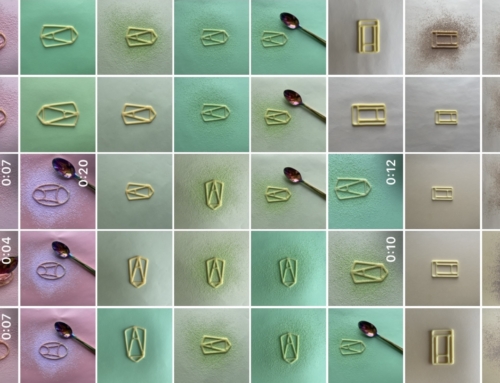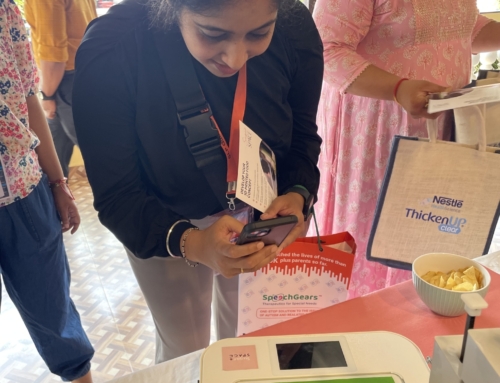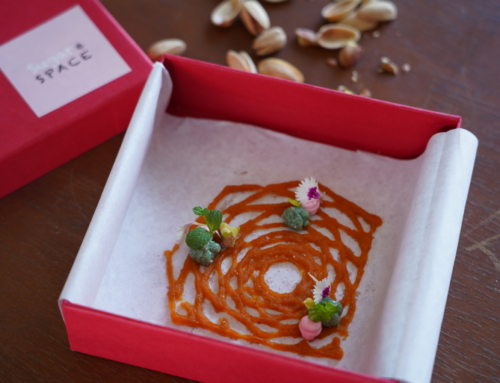
As I found myself in San Francisco, and felt lost in New York, there’s one thing I found in common walking these streets again. Many more San Franciscans and New Yorkers are embracing the vegan lifestyle and the streetscapes reflect that. But this got me thinking about the trends back home in India: Is the rising popularity of Veganism making it easier for Jains to eat out? How similar are Vegans and Jains? How often does someone confuse the two? Are they interchangeable?
The Foundations of being Vegan and Jain
Fundamentally, the Jain approach of life believes in “Ahimsa,” a life of harmlessness. (However) In the current world, everyone has their own iteration of being Jain. Vegans adopt their life style to abstain from using animal products, advocating a cruelty free world. The major pillar of both the beliefs is to not harm, which results in both not consuming meat. However, other than this, the actual functionality of their lifestyles are very different and so is the rationale behind it.
Vegans forbid the use of dairy products such as milk, yoghurt and cheese. They believe that dairy products are obtained by exploiting female reproductive system via machines that hurt them. Vegans have found substitutes for dairy products. On the other hand, Jains do consume milk products. In the olden days, majority families owned a cow or a buffalo and treated it like a part of the family and would nurture it and milk the cows with their bare hands. Even now, Jains only consume milk that is milked by hand and not fuel the industry where cows/buffaloes are machine milked. Whereas, there are some Jains who have completely stopped the consumption of dairy products.

The Nuances
Jain beliefs prohibits them from eating any root vegetables such as potatoes, onions, carrots. The reason being that the bulb of the plant is considered as a living thing as it is able to sprout. When plants, such as onions and potatoes, are pulled from the ground, the entire plant in being killed as the plant is unable to grow again. However, when you pluck plants that are above the ground, you do not kill it as it continues to grow even without the vegetable. Vegans consume all fruits and vegetables as their core belief is to refrain from using products that affects animals.
Honey and gelatine are two products other than meat that neither Jains nor Vegans consume. Vegans consciously do not purchase any item such as leather, silk. Only staunch Jains refrain from purchasing leather and silk. There are many such others items that are debatable by both the sides but is it just about food or does it run deeper than that?
Something to Think About
Jains don’t eat after sunset or before sunrise. The reason being between those times, there is no sunlight. In the olden days, when there was no electricity, people could not see what they were eating. They could end up eating insects without realizing what was actually going into their mouth. The practice of not eating after dark is still followed, but is the logic still applicable? Or it followed with the backing of science which says that eating early is better for digestion and your body? What do Vegans think about this?
Vegans are extremely particular about reading labels of every product they purchase and so are Jains, but how true are the labels? Do we consume products unaware of the ingredients? How conscious are we when we buy something? What do Jains and Vegans think about this? Should our practices (religious or lifestyles) adapt/evolve with time? What do you think?
Author
Mansi Tibrewala
Mansi Tibrewala is a Teach For India alum pursuing her passion for food at Sugar & SPACE. In her free time she enjoys reading Harry Potter or playing board games with a glass of gin.







Veganism has picked up all over the world in the last couple of years but I question whether it’s just a fad or people are actually adopting it because they want to. Although vegans and Jains adopt such similar life choices this is the first article I’ve read that speaks about the two together. Nice work team Sugar & Space!
An intriguing article. Good work!
Such an insightful article on two ideologies that are often confused. I think we should be more cognisant of what we are feeding our body and it’s impact on our environment. Thank you for making us readers think!
Veganism is sustainable for the environment and does not interrupt the circle of life. But it also had many cons such as being prone to deficiencies. Very helpful article.
First of all , not even a mere 100 year old Western concept that Challenges the Eastern & the most ancient religion: essentially whose core is Ahimsa : Non-violence in every way of life : Man , Vachan & Kaya (Thoughts , Speech & Actions).
Jainism encompasses Non-violence in just food but even thoughts & actions. Jainism has its ultimate goal of Moksha. Jainism has principles which considers Non-violence from Micro-organisms : Ekindriya Jiv (1 sense Life) to Panchindriya Jiv (Life forms with 5 senses). It’s not just ban of Meat and the violence that you can see through your eyes, it’s beyond that. Jainism is an ocean of Non-violence.
It’s not free will like Veganism where someday you feel guilty of holding a meat loaf and you stay vegan for a period of time when craving hits you back and you end Veganism. It’s because human behaviour is controlled by excessive urge of Human senses. Jainism focus on rituals to end your cravings. So that’s the difference between concept and a religion.
Also , Jain’s don’t eat after Sunset as without Sun every edible thing has potential to give birth to Microorganisms, and if you consume that it causes Violence to countless lifeforms. Its not such a dumb reason that you mentioned one doesn’t see an insect lying in your plate!
Jainism has principles of Non-violence to even microscopic level , not just of a Shallow concept which only can see violence perceived through human eyes.
Anyways it’s just a western world trick to steal ancient Eastern concepts, tweak them a little , brand it with some Jazzy name and bingo ! Patent registered !
Micchami Dukkadam 🙏